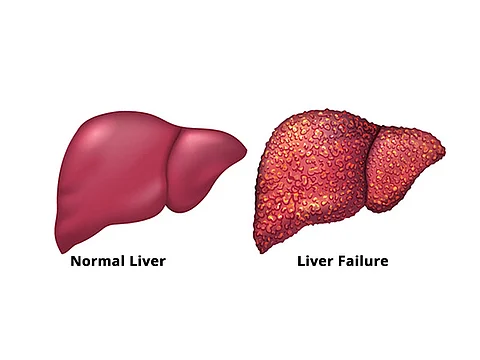

A sudden loss of liver function in a person with no history of liver diseases is called Fulminant liver failure or Fulminant Hepatic Failure (FHF).
This phenomenon is characterised by hepatic encephalopathy, where the brain function is severely disrupted and the patient may slip into a coma.
In most cases, the patient may need a liver transplant without which the condition would turn fatal. Though the number of cases of FHF is rare, they are not unseen.
Severe and life-threatening complications
The fulminant hepatic can affect a healthy person very quickly, typically within eight weeks. The condition is very severe and may even be fatal in the absence of immediate medical attention.
Dr Kavya Dendukuri, a lead consultant hepatologist and gastroenterologist at Kamineni Hospitals in Hyderabad, said, “Due to the reduced function of the liver and loss of liver cells, an individual can suffer from jaundice. This would lead to further complications.”
This affects brain function since the damaged liver can no longer remove the toxins in the blood. Depending on the cause of the damage, the condition is reversible. There could be bleeding and increased pressure inside the brain.
“In severe cases, the patient may even slip into a coma. The bleeding and clotting factors get impaired as well. The liver failure in most cases requires a transplant,” Dr Kavya said.
Causes of fulminant liver failure
There are several reasons for the FHF, which include hepatitis and other viruses, acetaminophen (paracetamol) overdose and autoimmune diseases among others.
“The presence of viral Hepatitis A, B or C can be a reason for FHF. This can be rare but has been reported earlier. Alcoholic hepatitis, autoimmune disease or drug overdose can lead to liver failure,” Dr Kavya said.
Common symptoms and consequences
Jaundice is the most common symptom of FHF, whereas early symptoms include arterial hypertension, seizure and agitation.
The consequences include the building up of excess fluid in the abdomen (ascites), cerebral oedema, severe coagulopathy, gastrointestinal bleeding and hemodynamic instability.